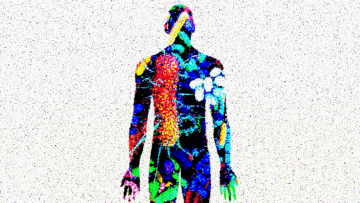James Hamblin in The Atlantic:
 To get this out of the way: Destroying the coronavirus is, without question, paramount. Millions of people are dead, and tens of thousands more die every week. At the same time, the majority of the trillions of microbes that inhabit our skin and gut—collectively, our microbiome—are either harmless or helpful. “The microbes we carry around are involved in many of the fundamental processes of Homo sapiens,” Brett Finlay, a professor of microbiology and immunology at the University of British Columbia, in Canada, told me. Among their other roles, these organisms interact with the immune cells in our skin and teach them to respond only to serious threats. The overall effect of messing with our microbes is not manifestly good or bad, but it is also manifestly not zero.
To get this out of the way: Destroying the coronavirus is, without question, paramount. Millions of people are dead, and tens of thousands more die every week. At the same time, the majority of the trillions of microbes that inhabit our skin and gut—collectively, our microbiome—are either harmless or helpful. “The microbes we carry around are involved in many of the fundamental processes of Homo sapiens,” Brett Finlay, a professor of microbiology and immunology at the University of British Columbia, in Canada, told me. Among their other roles, these organisms interact with the immune cells in our skin and teach them to respond only to serious threats. The overall effect of messing with our microbes is not manifestly good or bad, but it is also manifestly not zero.
Our microbiome is constantly in low-level flux, depending on our environment—the people around us, the food we eat, the soaps we use, and so on. But many of our environments and daily routines have changed dramatically over the past year as a result of the extreme focus on hygiene and potential viral exposures of all sorts. This has almost certainly had substantive effects on our microbiome diversity, individually and collectively, Finlay said. “The concern among some microbiologists, for the last decade or so, has been that the collateral damage of excessive sanitizing and use of antibiotics is not good, in terms of microbes that we spent thousands of years evolving with.” He cited links between antibiotic overuse and increasing rates of asthma and obesity, as well as a smattering of evidence about the beneficial effects of vaginal deliveries versus Cesarean sections. There is also evidence that having a diverse microbiome is an indicator—if not necessarily a driver—of good health.
The pandemic may have accelerated that loss of diversity.
More here.
